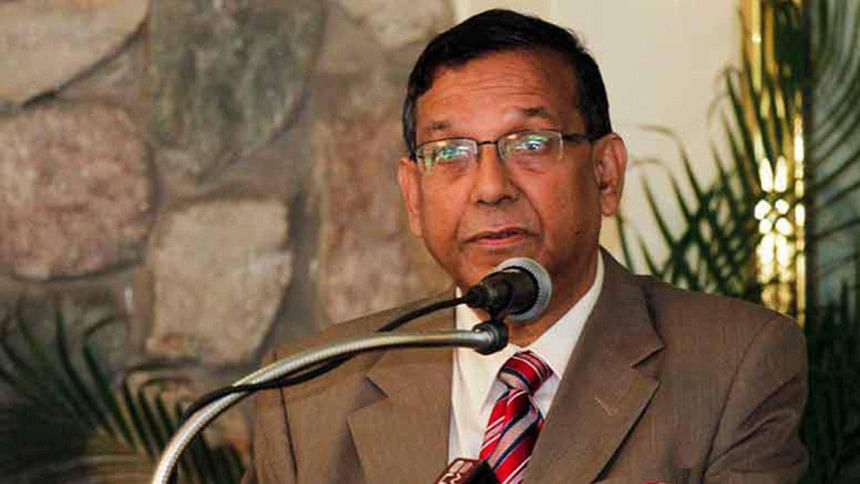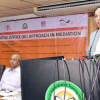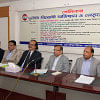Convention Against Torture: Dhaka to work on its commitment

Bangladesh strives to fulfil its commitment to complying with the convention against torture, said Law Minister Anisul Haq yesterday.
The minister, who presented the country’s maiden periodic report to the Committee against Torture (CAT) in Geneva on Tuesday, said the first en-gagement with the committee gave Bangladesh a better understanding about ways to improve.
“ ... we concentrated on legal framework in our report since we have sub-mitted this for the first time. ... Our engagement with you has given us some understanding about the data you would like to see in our future re-ports,” Anisul told the CAT meeting for Bangladesh in his concluding speech.
The law minister, who is leading a 24-member team, faced a barrage of questions on the opening day of the meeting yesterday.
During his nearly two-hour deliberation yesterday, he tried to respond to the queries he had faced the day before.
He said parliament enacted the Torture and Custodial Death (Prevention) Act, 2013 with the specific objective to make the law conform to the provisions of CAT, a UN body.
The act contains provisions for prevention and punishment for any act amounting to torture.
Bangladesh was supposed to submit four periodical reports since its accession to CAT in 1998.
The minister in his defence for the delay said it was due to the tumultuous period the country had gone through since the assassination of the Father of the Nation Bangabandhu Sheikh Mujibur Rahman in 1975.
“A culture of impunity emerged with the killing of the Father of the Nation and his family in 1975. After the assassination of Bangabandhu, an indemnity act was promulgated in September 1975, which delayed the process of justice for 21 years.
“Four other national leaders were also killed in jail in November 1975. Those were also under the indemnity ordinance,” he said.
He claimed that after 1975, Bangladesh was under several autocratic and undemocratic governments before democracy was truly restored in 1996.
The committee should consider the background for the delay in submission of the report, Anisul said.
Responding to a question on who were consulted whilst preparing the report, Anisul said they consulted the National Human Rights Commission (NHRC) and all nationally registered NGOs that submitted reports.
He said the NGOs’ names were in Bangladesh’s report submitted to the CAT.
Anisul read out the names of Ain o Salish Kendra, Bangladesh Legal Aid and Services Trust, Human Rights Legal Aids Services Brac, National Forum of Organisation Working with the Disabled, Naripakkha, Bangladesh National Women Lawyer’s Association, Manusher Jonno Foundation, Bangladesh Nari Progati Sangha, Bangladesh Institute of Law and International Affairs, Bangladesh Dalit and Excluded Rights Movement, Nagorik Uddyog, Karmojibi Nari, Bangladesh Mahila Parishad, Bandhu Social Welfare Socie-ty, Bangladesh Institute of Labour Studies, and Policy Research For Development Alternative among others.
The minister refuted the claim that article 35 of the constitution contradicted the convention against torture.
About the Special Powers Act 1974, which allows detention of a person without any reason for up to 90 days, he said the government had no plans to cancel it.
He said the act was introduced with the good intention of curbing smug-gling, adulteration, and counterfeiting. But it was widely abused after 1975, he alleged.
Anisul claimed that the misuse of the law had come down to zero level in the last 10 years.
Regarding the police and Rab’s demand for being outside the purview of Torture and Custodial Death (Prevention) Act, 2013, the minister said, “Any government body can make its recommendations with regard to legal provisions. In this regard and in this particular case, I must say that this re-quest was made to the prime minister and since the request was made, no amendment to the law was brought.
“And here I can affirm that no such amendment would be brought,” he said.
Responding to a question, he said at the moment the government has no plans to abolish capital punishment.
About an account of torture in Rab custody given to Swedish Radio by a former official of Rab, the law minister said that they were not sure if the person was actually a Rab official. He said he also asked for Swedish Radio’s help in identifying the person.
CAT Chairman Jens Modvig thanked the Bangladesh delegation chief. He said Bangladesh has got another 48 hours to submit anything in writing to CAT.
CAT will publish its observations in a week.
The chairman said the committee would make three recommendations for Bangladesh to implement in a year on priority basis.

 For all latest news, follow The Daily Star's Google News channel.
For all latest news, follow The Daily Star's Google News channel. 








Comments